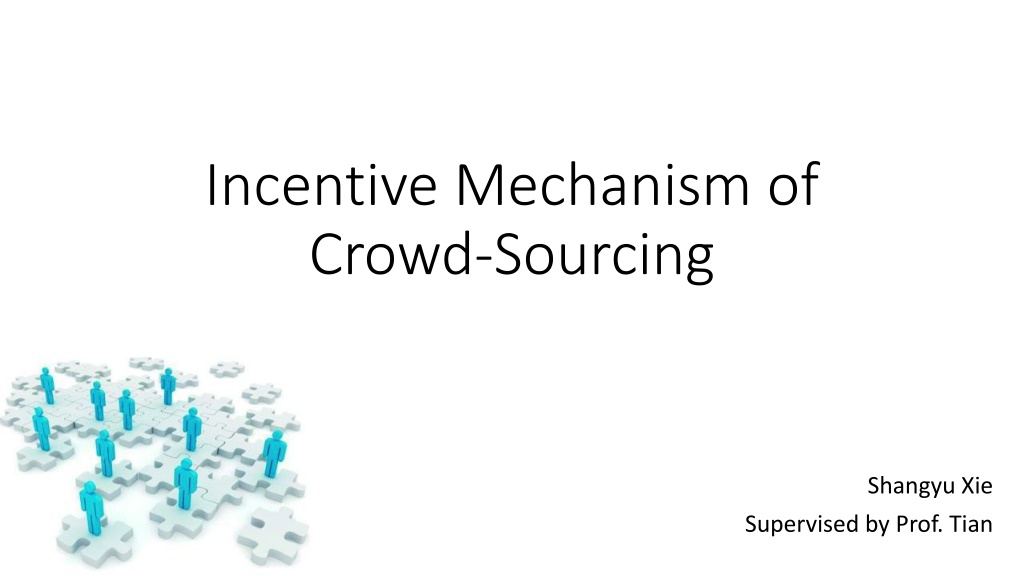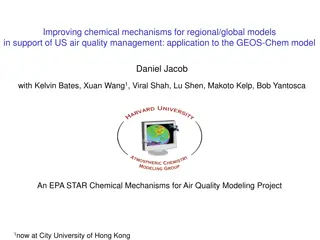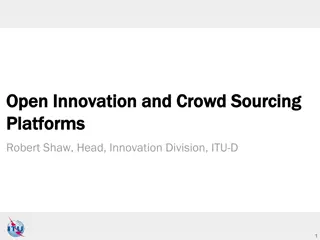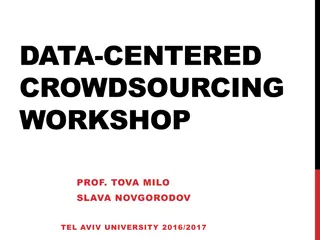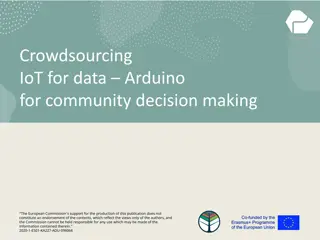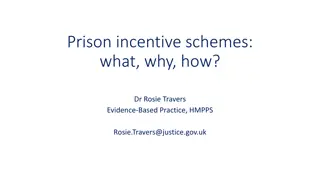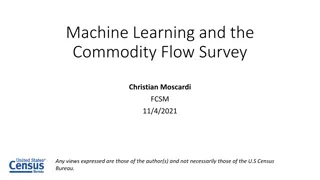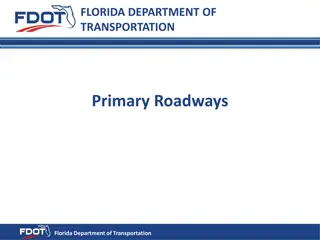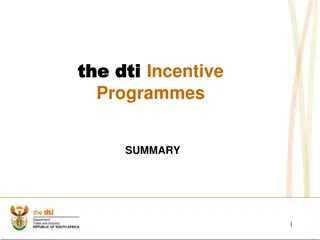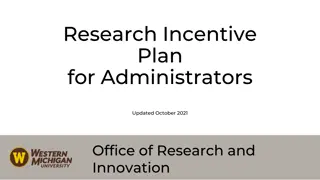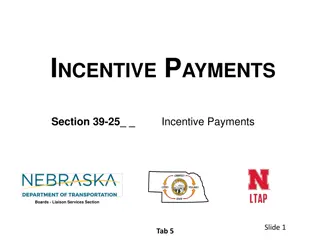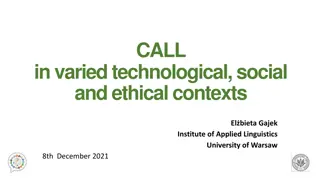Exploring Incentive Mechanisms in Crowdsourcing
Understanding the concept of crowdsourcing and the importance of incentive mechanisms in harnessing the power of a large group of people to accomplish tasks. The journey involves navigating challenges like data roughness, human complexity, and the drive for research, while emphasizing the need for quality data and cost efficiency in plans.
Download Presentation

Please find below an Image/Link to download the presentation.
The content on the website is provided AS IS for your information and personal use only. It may not be sold, licensed, or shared on other websites without obtaining consent from the author. Download presentation by click this link. If you encounter any issues during the download, it is possible that the publisher has removed the file from their server.
E N D
Presentation Transcript
Incentive Mechanism of Crowd-Sourcing Shangyu Xie Supervised by Prof. Tian
What is Crowdsourcing? Crowdsourcing is the process of obtaining needed services, ideas or content (Sourcing) by soliciting contributions from a large group of people.(Crowd)
No! Ideality Reality
High-quality of Data Cost-efficiency of Plan
Incentive Mechanism We need encourage! It is candy and ice-cream.
RULE is necessary! Force &Encourage
What I have been doing Model it from a transaction view based on game theory Categorize and Estimate basic mechanisms which are commonly used in application Try to set up a incentive mechanism work better
A Quick Introduction Worker High Low Requester Profit p-r(q),r(q)-c(1) -r(q),r(q)-c(0) r(q): reward function; c(q): cost function; p: profit for the requester; q: quality of workers work.
Validation approach Majority voting Standard testing
Two commonly used mechanisms Reward for consensus mechanism Reward for quality mechanism
Math(1) Cost function c(q), q [0,1] Convex in q; c (q) >0; c(q) differentiable in q; c(0)>0. Reward function r( ) Undefined Why? Made by requester. Should be r(q), q [0,1]? Utility function u(q), q [0,1] Convex in q; Made by worker.
Math(2) For consensus mechanism, let q be the one worker action; q be other workers action for task; Convergence probability p= Where, K is the number of workers. Further The utility the worker get u(q, q )= ? ?! ?!(? ?)!? ?1 ? ? ?; ?= ? 2 ) ?? ?(? ) ?(? ;
Math(3) The final utility of worker should be Further, ) ?(?,? = 1) = ?? ?(? ; ) ??(?,1 ?? |?=1= ? ? (1) 0 So what does it mean? Budget (at least) ) ? = (? + 1)? (? + 1)? (1
Math(4) For accuracy mechanism, let e be the validation costs for work; be the percent of validated; (0,1] Then, the expected utility ) ? = ?[(1 ?) + ??] ?(? ; Following the same, ?? ??|?=1= ?? ? (1) 0 ? (1 ) ? ?
Math(5) Finally, the budget is ? = (1 ?)? + ?? ) ? (1 ? =(1 ?) + ?? ) ? (1 ? = + ?? + ? (1);
My Thought Tricky but worth a try.
Whats next? Combine the two to find a best trade-off More tricky, focus on r( ), also can be controlled by requester!
